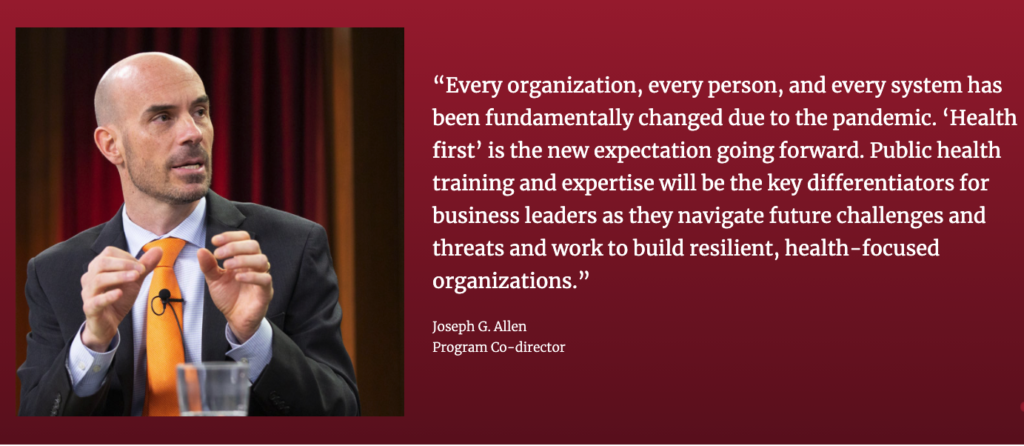Harnessing the Power of Healthy Buildings Research to Advance Health for All
“We believe that the most important aspect of this burgeoning healthy buildings movement is ensuring that the research and its application benefits everyone, everywhere. A future of healthy buildings that is confined to a select few would be a gross failing. Researchers must play an important role here by creating studies that include: globally diverse buildings and exposures; races and ethnicities that have been historically under-represented in research; a focus on the unique needs, physiology, and preferences of women; and exploring the entirety of the reproduction and life cycles, from pre-conception through advanced aging.”
CoBE: A Novel Method for Quantifying Health and Climate Savings
We are excited to announce our new CoBE Tool is now open for public access. The tool provides an exciting new way of quantifying the health and climate savings of your buildings and is able to project these co-benefits all the way out to 2050.
Explore our case studies to learn how the CoBE tool can help you assess building performance and benchmark emissions against climate policies.

New Study: Indoor Air Quality and Air Cleaning Solutions in Homes Following Maui Wildfires
In collaboration with the University of Hawai’i at Manoa (UH) and local community members, researchers of the Harvard Healthy Buildings Program examine human health risks of wildfire-related pollutants in homes following the Maui wildfires in August 2023. This study will provide much-needed information on indoor exposure to wildfire air pollution and the effectiveness of reduction strategies to protect human health in affected communities.
There are steps you can take to help reduce your indoor exposure to wildfire air pollution and protect your health. Explore our free tools and resources to protect your home from harmful pollutants and create healthy indoor environments.
Lancet Report: “Proposed Non-infectious Air Delivery Rates (NADR) for Reducing Exposure to Airborne Respiratory Infectious Diseases”
To advance the conversation around health-based ventilation targets for airborne respiratory pathogens, the Lancet Task Force on Safe Work / School / Travel reviewed the scientific evidence around ventilation and disease transmission for SARS-CoV-2 and other airborne pathogens. As chair of the task force, Dr. Joseph Allen, Director of the Healthy Buildings Team at Harvard T.H. Chan School of Public Health, underlines: “ The important scientific debates about metrics and targets must continue, yet these debates should not deter us from improving ventilation now.”
Public Health and Business Leadership (PHBL) Program
The Harvard T.H. Chan School of Public Health’s program for Public Health and Business Leadership (PHBL), directed by Dr. Joseph Allen, brings together leading health experts and business leaders to foster the dialogue and co-create solutions to jointly shape the new “health-first era.”
As we confront the world’s pressing issues, we must take a holistic approach to address challenges, incorporating public health as a critical component to build a resilient future and guarantee equitable access for all.


